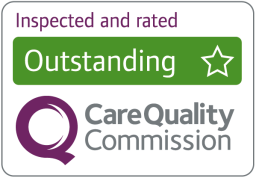What you need to know about emergency contraception
You can use emergency contraception to reduce the chance of getting pregnant if you’ve had unprotected sex or your usual contraception has failed. This might happen if you’ve missed some pills, not replaced a contraceptive patch in time, or used a condom that’s split.
There are 2 types of emergency contraception
Pills
There are two different types of the emergency contraceptive pill:
levonorgestrel 1.5mg – effective if taken within 3 days (72 hours) of sex
ulipristal acetate 30mg – effective if taken within 5 days (120 hours) of sex
Ulipristal acetate is more effective than levonorgestrel at preventing pregnancy.
Learn more about emergency contraception pills
The non-hormonal coil
The non-hormonal coil is also known as the IUD or the copper coil. There are several types available. It’s usually a T-shaped device made of copper and plastic that’s placed inside the womb. Any of them can be used for emergency contraception and they are equally effective.
What type of emergency contraception is more effective?
The coil is over 99% effective at preventing pregnancy. It’s more effective than emergency contraceptive pills, which are 50-66% effective.
Emergency contraceptive pills are not recommended as a regular method of contraception. The risk of pregnancy is high if you use them repeatedly. Other forms of contraception are far more effective.
Emergency contraceptive pills delay ovulation, they do not stop it, so if you have sex again later in the same cycle you can still get pregnant.
Which type should you choose?
Whether to choose a pill or the coil depends on:
how long it is after your pregnancy risk and how quickly you can access the different types
whether you want the most effective method of emergency contraception – the non-hormonal coil is the most effective method
if you’re using a hormonal method of contraception: you shouldn’t use the 5-day (120-hour) emergency contraception pill as it can make your hormonal contraceptive less effective
if you’re breastfeeding the 5-day (120-hour) emergency contraception pill requires you to express and discard your breast milk for 7 days after taking it, so might not be the best option for you
if you’re taking other medication (such as steroids) that can interact with ulipristal acetate
whether you’re happy to have a coil fitted and can get an appointment in time – read more about the procedure here
whether you want ongoing contraception – the coil, if you keep it after fitting, will give you ongoing, effective contraception for 5-10 years (if not you can have it removed after your next period)
Common questions
When should you use emergency contraception?
If you’ve had a pregnancy risk, you should use emergency contraception no matter where you are in your cycle, even though you’re more fertile at some times than others.
After childbirth, an abortion or miscarriage, you can get pregnant again very soon afterwards. Read more about the types of contraception and emergency contraception you can use after pregnancy.
What about sexually transmitted infections (STIs)?
If you’ve had unprotected sex, then you may be at risk of sexually transmitted infections and need to consider getting tested and accessing treatment.
What if you’re at risk of getting HIV?
If you’ve had unprotected sex or a condom split with a partner who either has untreated HIV or is at high risk of HIV, you should consider taking PEP (post-exposure prophylaxis).
PEP is a 1-month course of medication that will reduce your chance of catching the virus if you’ve been exposed to it.
Find your nearest PEP service.
When can you get STI tests?
If you’ve had sex that was not protected and want to get tested for STIs, you’ll need to wait a little while to get an accurate result. This is when to get a test:
chlamydia and gonorrhoea: 2 weeks after unprotected sex
HIV: 7 weeks after unprotected sex
syphilis: 12 weeks after unprotected sex
You’ve used emergency contraception. Do you need to take a pregnancy test?
If you haven’t had a usual period (of the normal length and flow for you) in the 3 weeks after using emergency contraception then you should take a pregnancy test.
Everything you wanted to know about sexual health and wellbeing - your questions answered by our expert team.



